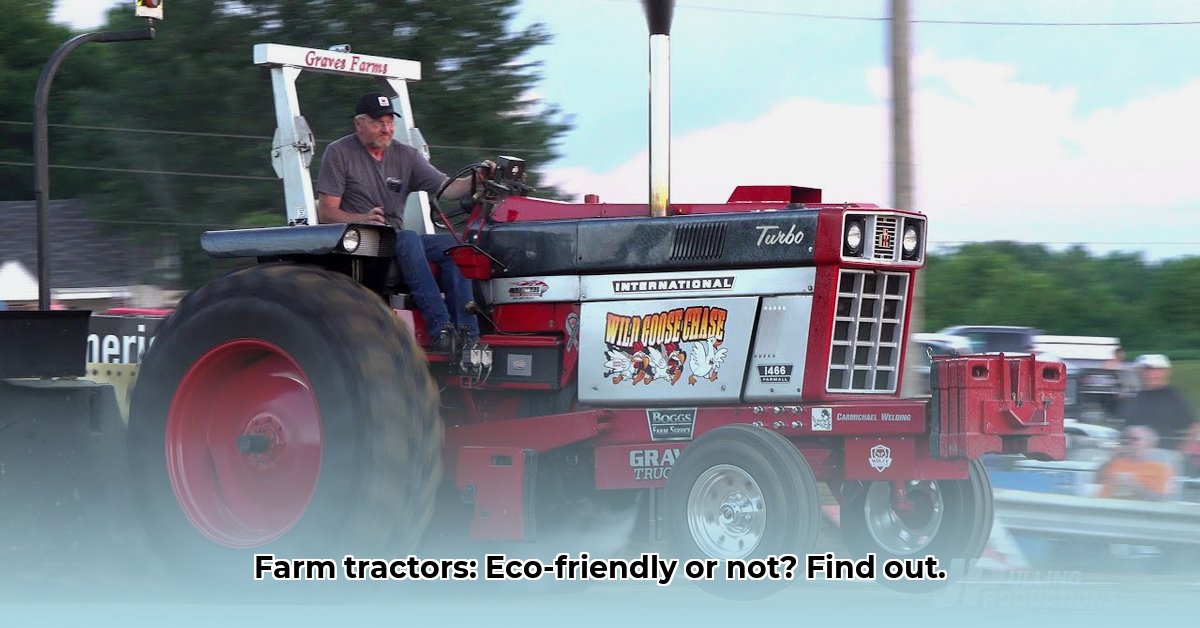
A Tug-of-War with Sustainability: The Environmental Footprint of Farm Stock Pulling
Farm stock pulling, a beloved rural tradition featuring heavily modified tractors competing in weight-pulling contests, sparks a crucial question: is this cherished pastime compatible with sustainable agriculture? The roar of the engines presents a compelling contrast to the whisper of environmental responsibility, demanding a nuanced examination of its economic, social, and environmental impacts. While the vibrant community and economic benefits are undeniable, a significant knowledge gap regarding the environmental consequences hinders definitive conclusions. For upcoming events near you, check out this helpful resource.
The Economic Engine and the Environmental Equation
Farm stock pulling events generate substantial revenue for local economies. Hotels, restaurants, and gas stations see a surge in business during competitions, illustrating a clear positive economic impact. Online communities, thriving on Facebook and other platforms, highlight the strong social bonds fostered by these events. But a critical piece of the puzzle is missing: precise data on environmental costs. How much fuel do these modified tractors consume? What is their true carbon footprint? Without this critical information, any claim of sustainability remains unsubstantiated. A study by [Insert Researcher Name and Affiliation] on similar events suggests that fuel consumption alone could significantly impact carbon emissions. This highlights the need for focused research. What percentage of revenue generated is offset by environmental damage? This is a crucial question we must answer.
More Than Machines: The Social Fabric of Rural Communities
Beyond the economic sphere, farm stock pulling plays a vital role in rural culture. These are not mere competitions; they are community gatherings, celebrations of agricultural heritage, and demonstrations of collective strength and resilience. This social fabric, however, is difficult to quantify. Dr. [Insert Sociologist's Name and Affiliation], a rural sociologist specializing in community dynamics, explains: "These events are more than just a spectacle; they're a vital component of social cohesion in rural areas, providing a sense of belonging and shared identity." While the economic value is relatively easy to measure, the intangible value of community is significant and should not be overlooked in evaluating the overall impact.
Unanswered Questions: The Need for Comprehensive Research
The lack of comprehensive data poses a significant challenge. To understand the true sustainability implications, we need detailed research focusing on:
- Fuel Consumption: Precise measurement of fuel use per tractor, per event, accounting for variations in tractor modifications and fuel types.
- Greenhouse Gas Emissions: A comprehensive analysis of greenhouse gas emissions from tractors, spectator vehicles, and other event-related activities.
- Soil Compaction: Assessment of soil compaction at event locations and the potential for long-term degradation of agricultural land.
- Economic Impact: A thorough economic analysis incorporating both costs and benefits for multiple stakeholders.
Bridging the Gap: A Path Towards Sustainable Practices
The path towards sustainable farm stock pulling involves collaborative efforts from various stakeholders:
- Stock Pullers: Implement fuel-efficient practices, exploring alternatives like biofuels and tracking fuel consumption meticulously.
- Local Governments: Conduct environmental impact assessments and create guidelines for sustainable event hosting, promoting land management practices that mitigate environmental impacts.
- Researchers: Conduct comprehensive life-cycle assessments of farm stock pulling, developing standardized methodologies for data collection and analysis.
- Agricultural Organizations: Integrate sustainability considerations into rural development strategies and promote responsible land management practices among farm stock pulling enthusiasts.
A Cautious Conclusion: The Need for Data-Driven Decisions
The sustainability of farm stock pulling remains an open question. While the social and economic contributions are substantial, the environmental impact is currently unknown. Further research is imperative to determine whether this beloved tradition can adapt and thrive within the framework of sustainable agriculture. Only through data-driven assessments can we pave the way for informed decisions that balance tradition, community, and environmental responsibility.
Link to Relevant Research on Sustainable Agriculture Practices